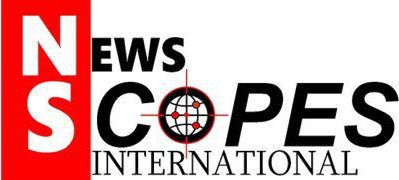يبدو أن إيران ليست لديها نية الانخراط في الحرب التي تتسع شيئا فشيئا بين إسرائيل وحزب الله رغم كل الدعم المعلن في وسائل الإعلام، حيث رفضت مؤخرا توجيه ضربة لإسرائيل.
ونقل موقع أكسيوس الأميركي عن مسؤولين إسرائيليين وغربيين قولهم إن الحزب حث إيران على شن هجوم ضد إسرائيل مع تصاعد ضرواة القتال، إلا أن طهران تحفظت على تنفيذ الطلب.
كما جاءت التصريحات الرسمية الإيرانية متوافقة مع هذا الطرح حيث قال الرئيس الإيراني الجديد مسعود بزشكيان إن بلاده لا تريد الوقوع في الفخ الإسرائيلي الساعي إلى توسيع نطاع الصراع، ما يوحي بأن إيران قد تخلت عن الحزب في وقت حساس للغاية.
وفي هذا السياق قال أستاذ العلوم السياسية في جامعة جورج واشنطن نبيل ميخائيل: “إن هناك تباعدا في المواقف بين إيران وحزب الله منذ اندلاح حرب غزة”.
وأضاف ميخائيل لقناة “سكاي نيوز عربية” أن: “حماس حاولت إدخال إيران في معادلة الحرب لكن طهران حافظت على نوع من الاستقلالية في صنع القرار”.
وتابع، “التحفظ الإيراني قد يكون نتيجة رسائل تلقتها من البيت الأبيض برفع العقوبات عن طهران مقابل ضمان كون برنامجها النووي غير عسكري وعدم سعيها لامتلاك سلاح نووي”.
وأشار ميخائيل إلى أنَّ “عدم قدرة إيران على الضغط على حزب الله معناه إطالة الحرب، وهناك استشارات عسكرية فيما يتعلق بإدارة حزب الله الصواريخ بعيدة المدى التي تصل تل أبيب وقصيرة المدى التي تستهدف المدرعات في الجنوب”.
وأكمل، “يمكن التكهن بدور سوري يمد حزب الله بمعلومات فنية لإلحاق الخسائر بالقوات الإسرائيلية”.
ورأى ميخائيل أنَّ “إيران تستطيع تحقيق مكاسب سواء في ظل إدارة الرئيس الأميركي جو بايدن ونائبته كامالا هاريس أو حتى حال انتخاب دونالد ترامب بعد ذلك”.
من جانبه، قال الكاتب والمحلل السياسي أحمد عياش: “إن إطلاق حزب الله صاروخ قادر 1 مؤشر على أن هذه العملية تمت بقرار إيراني”.
وأضاف، “الأسلحة الإستراتيجية التي يستخدمها حزب الله تكون بتنسيق وتوجيه ورعاية إيرانية”.
وأوضح عياش أنَّ “رئيس الوزراء الإسرائيلي بنيامين نتنياهو يريد استعادة ما حدث عام 1982 من اجتياح بيروت وإجبار منظمة التحرير الفلسطينية على المغادرة”.
وختم، “ما يجري في الوقت الحالي نوع من الهزيمة لإيران، لابد من استعادة شيء من الشرعية سواء في لبنان أو فلسطين”.
المصدر: سكاي نيوز عربية
“Disappointment for Hezbollah: Iran Avoids Direct Involvement in War”!
Signs are emerging that Iran is reluctant to engage directly in the escalating conflict between Hezbollah and Israel, despite its publicly declared support. Recently, Iran declined a request to strike Israel, causing disappointment within Hezbollah.
According to Axios, Israeli and Western officials revealed that Hezbollah had urged Iran to launch an attack against Israel amid the intensifying fighting, but Tehran was hesitant.
In line with this, newly elected Iranian President Massoud Bezhkian stated that his country does not wish to fall into Israel’s trap of broadening the conflict, suggesting that Iran is opting for caution at a critical time.
Nabil Mikhail, a political science professor at George Washington University, explained that “there has been a divergence in positions between Iran and Hezbollah since the Gaza war began.” He added that “Hamas tried to involve Iran in the war equation, but Tehran maintained its decision-making independence.”
Mikhail speculated that Iran's reluctance may stem from secret messages from the White House, offering to lift sanctions in exchange for guarantees that its nuclear program remains non-military. He also noted that Iran's inability to pressure Hezbollah could prolong the war.
Moreover, Mikhail hinted at a possible Syrian role in providing Hezbollah with technical data to inflict damage on Israeli forces. He suggested that Iran could secure gains, whether under the current U.S. administration of President Joe Biden and Vice President Kamala Harris or even if Donald Trump is re-elected.
Political analyst Ahmad Ayash highlighted Hezbollah's launch of the “Qader 1” missile as a sign of Iran’s direct involvement. He noted that Hezbollah’s use of strategic weapons is coordinated and supported by Iran.
Ayash concluded by noting that Israeli Prime Minister Benjamin Netanyahu is seeking to replicate the 1982 invasion of Beirut and the expulsion of the Palestine Liberation Organization (PLO), but today’s developments reflect a kind of defeat for Iran in this conflict.
translated by international scopes







